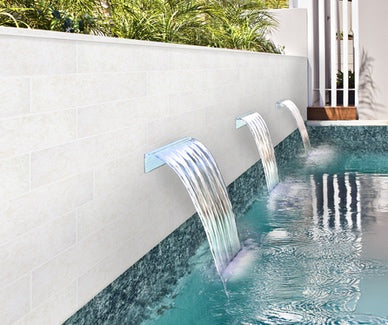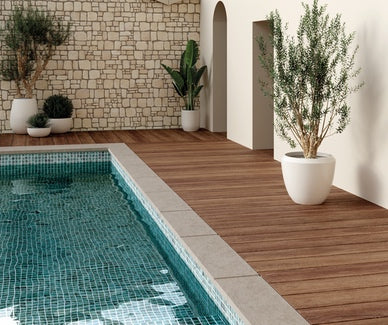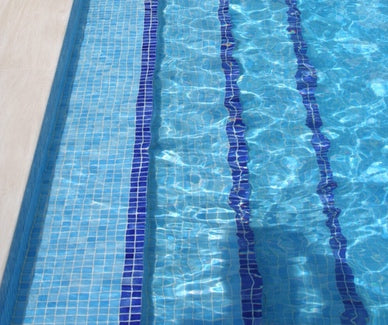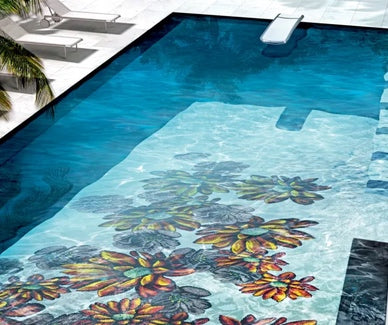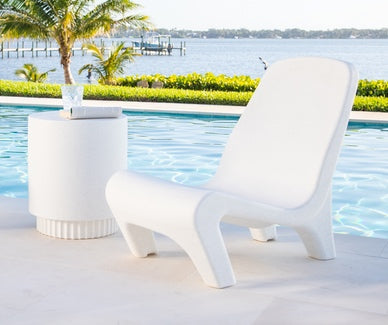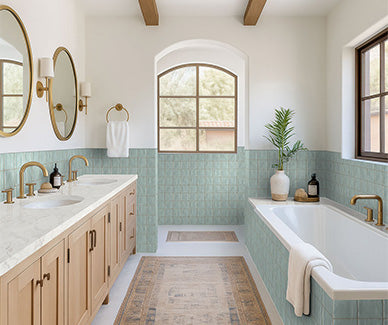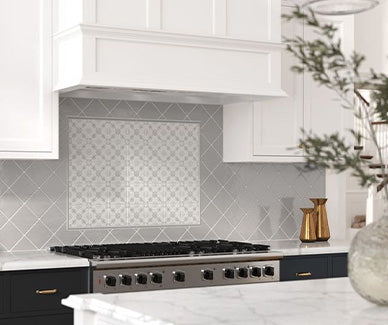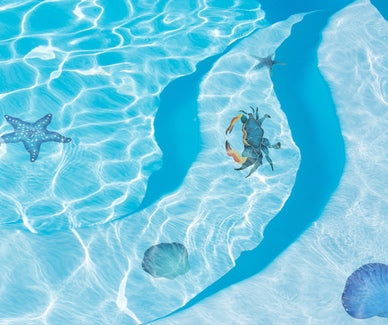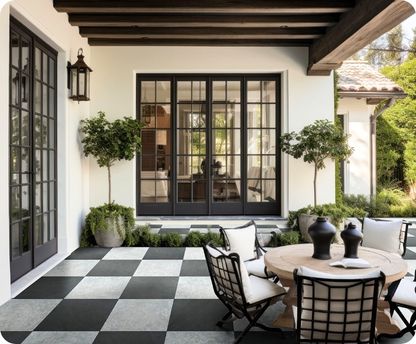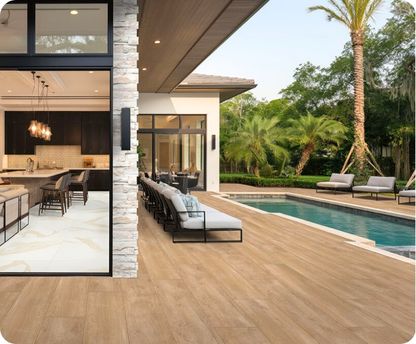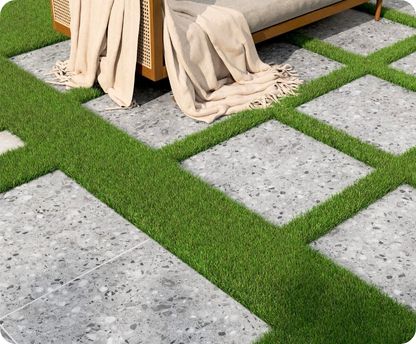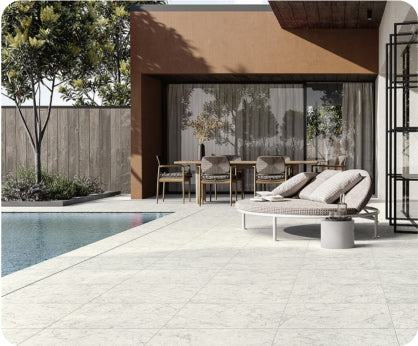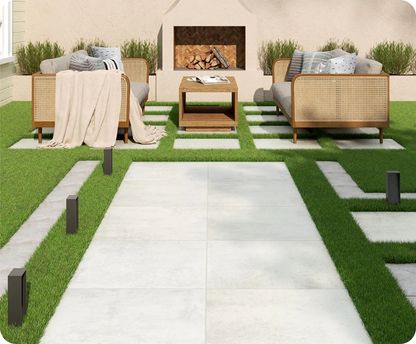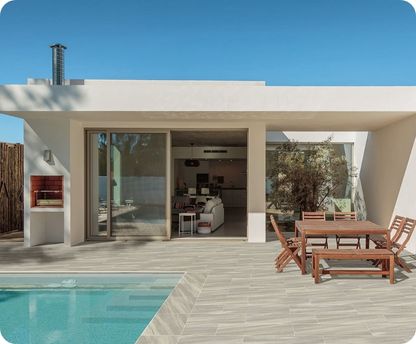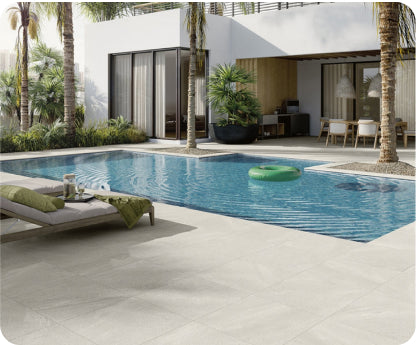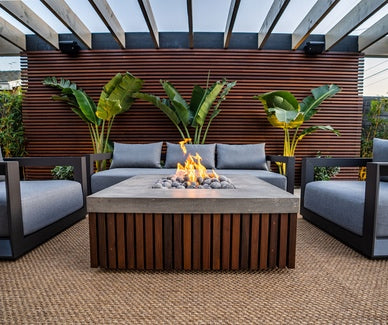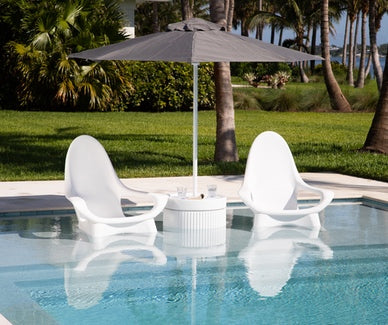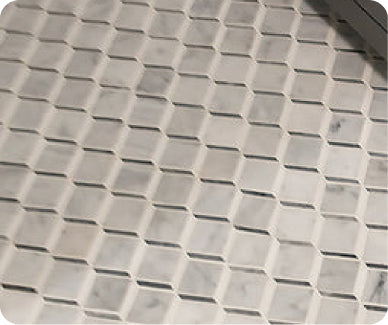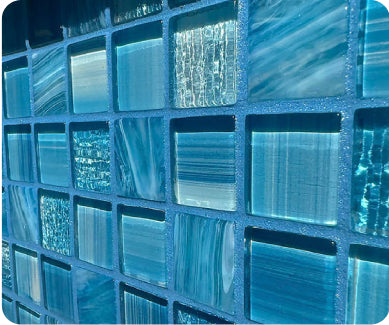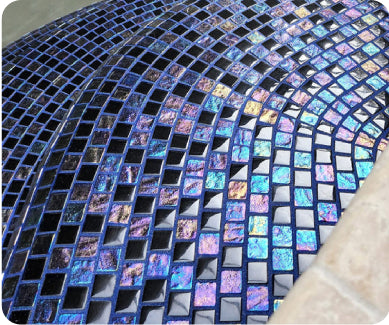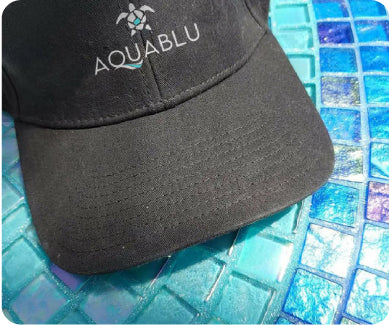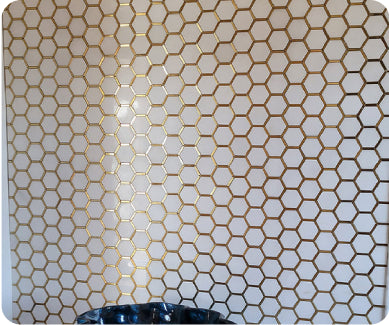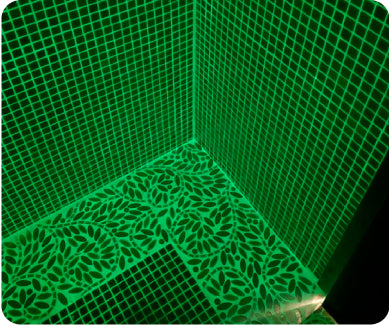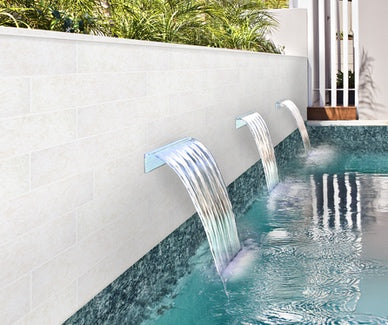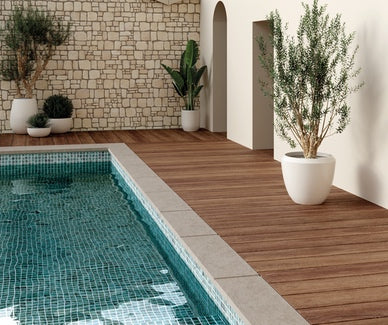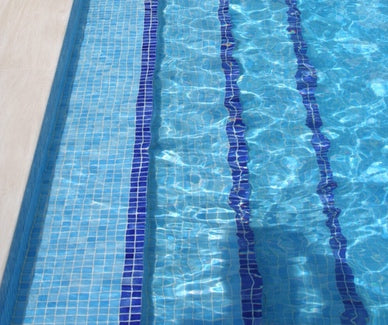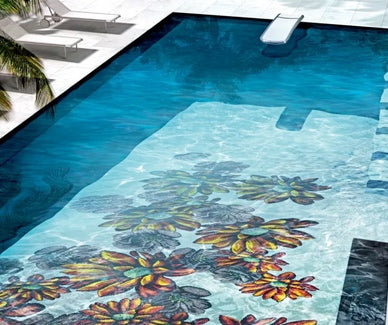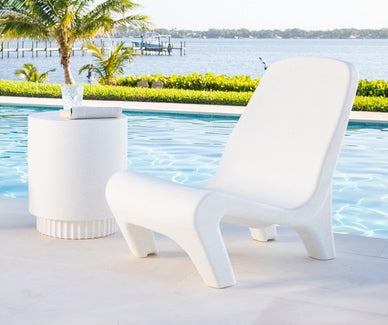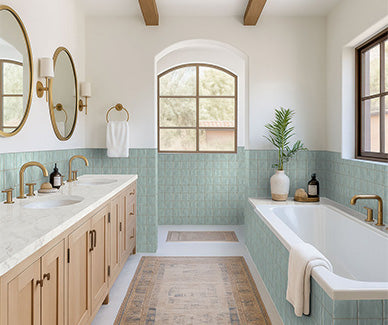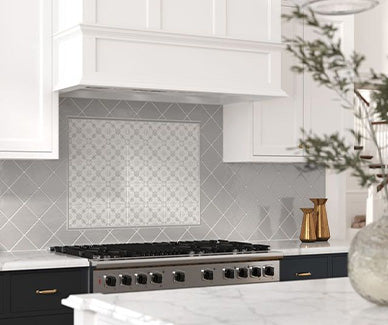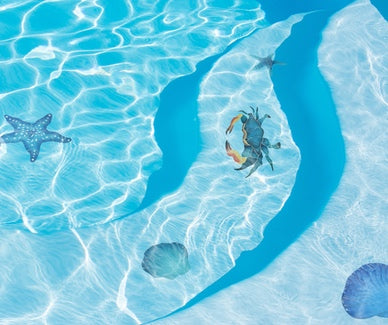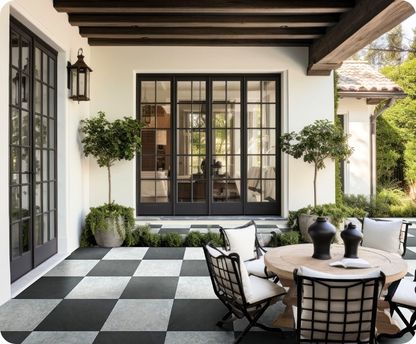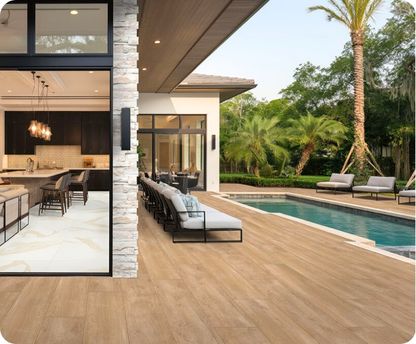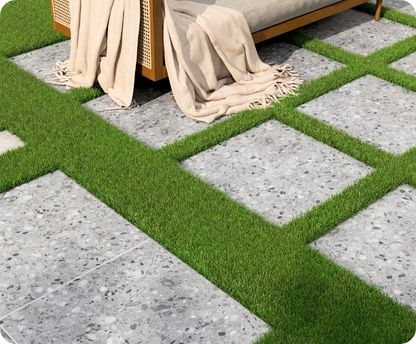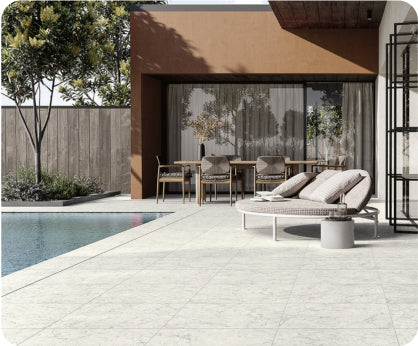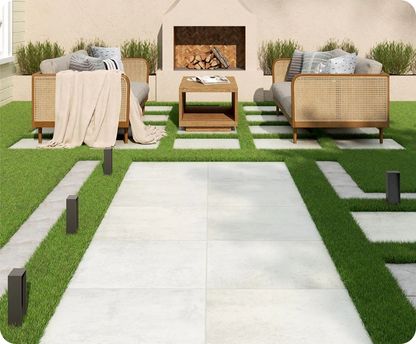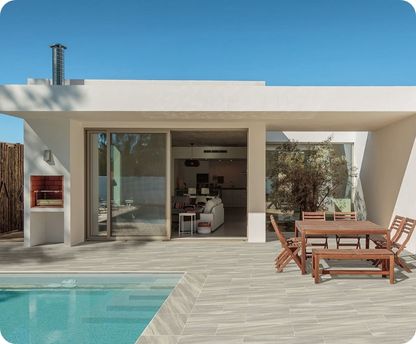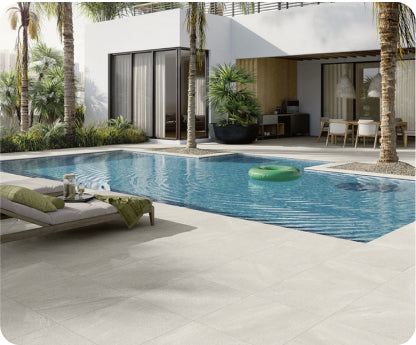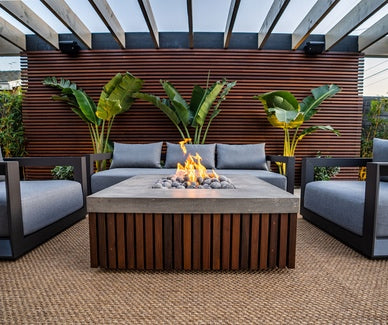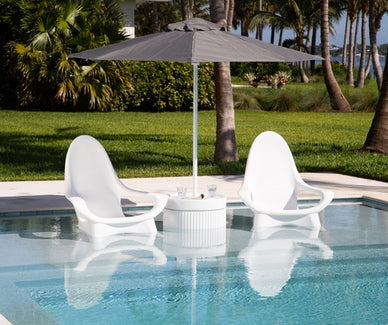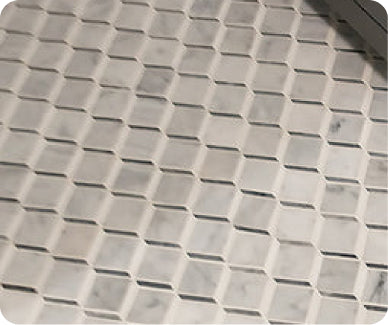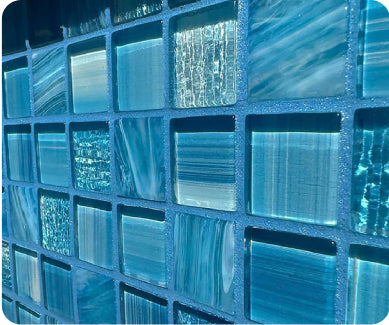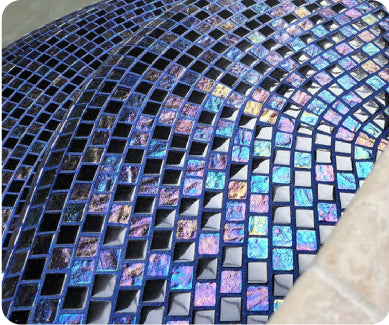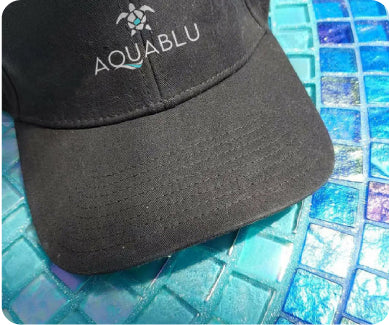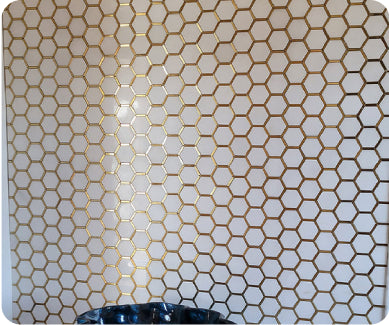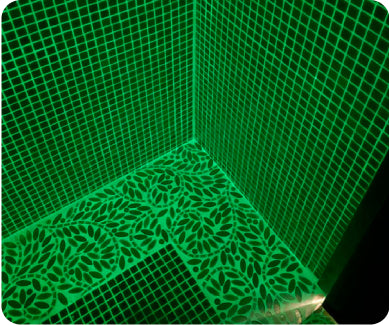

SALTSTONE PORCELAIN TILE
Saltstone is the industry’s first fully carbon-neutral porcelain tile, blending sustainability with refined style. Inspired by Venetian plaster and weathered concrete, it comes in six rich hues reminiscent of sea cliffs and sun-washed stone. Its matte finish and natural texture make it perfect for pool decks, waterlines, and seamless indoor-outdoor spaces like bathrooms, spas, and kitchens - all with lasting durability and low maintenance.
Related Links ⌵
Saltstone is the industry’s first fully carbon-neutral porcelain tile, blending sustainability with refined style. Inspired by Venetian plaster and weathered concrete, it comes in six rich hues reminiscent of sea cliffs and sun-washed stone. Its matte finish and natural texture make it perfect for pool decks, waterlines, and seamless indoor-outdoor spaces like bathrooms, spas, and kitchens - all with lasting durability and low maintenance.
Indoor-Outdoor Luxury Porcelain Pool Tile
Saltstone redefines poolside elegance with a conscious edge. As the industry’s first fully carbon-neutral porcelain tile, it brings sustainability to the forefront of sophisticated design. Inspired by the layered texture of Venetian plaster and the organic feel of weathered concrete, Saltstone features six saturated hues that echo sea cliffs, driftwood, and sunlit stone. Perfectly suited for pool decks, waterlines, and outdoor lounging areas, its matte finish and rich surface movement create a sense of quiet luxury that flows effortlessly into adjoining interior spaces. Offered in a range of sizes with coordinating trim, Saltstone provides seamless transitions from the pool to bathrooms, spas, and breezy coastal kitchens. Durable, low-maintenance, and undeniably refined, this collection is designed to elevate every detail - indoors and out.
Saltstone is a carbon-neutral tile collection that makes it easy to design sustainable, nature-inspired spaces without sacrificing durability or style. As a signature brand by AquaBlu Mosaics, BluHaven is dedicated to mindful, modern living - proving that beautiful design can also be environmentally responsible.
FAQ
How do pool tiles differ from regular tiles?
Pool tiles are engineered for constant exposure to water, pool chemicals, and temperature shifts, making them exceptionally non‑porous and long-lasting - qualities that regular indoor tiles often lack and are not built to withstand wet or submerged environments.
Which materials are best suited for pool tiles?
Porcelain and glass tiles are top picks for pools because of their robust, water-resistant, and low-maintenance features. Porcelain is dense and chemical-resistant with versatile colors and designs, while glass tiles offer dazzling, reflective surfaces and similar durability - though usually at a higher price. Natural stone also adds an elegant look and better slip resistance, but typically needs sealing. With the largest online pool tile selection, our AquaBlu experts can help match the perfect material to your project.
Why choose frost-resistant porcelain pool tiles?
Frost-resistant porcelain tiles are essential in colder climates, as they resist cracking and deterioration from freeze-thaw cycles. Our porcelain and glass options are built to endure harsh winter conditions, offering long-term performance while reducing upkeep and repair needs.
What tile finish works best for pool areas?
Choosing the right tile finish ensures both style and safety. Matte finishes increase traction, ideal for walking surfaces around the pool, while glossy finishes enhance color and impart a refined, luxurious look. We offer various finishes to match your aesthetic needs and safety priorities.
Are there limitations to using porcelain pool tiles?
Porcelain may lack the iridescent shimmer of glass, but its strength, classic appeal, and longevity are unmatched. It remains one of the most reliable choices for pool installations. Browse our new collections, including trendy zellige‑look tiles, and discover the timeless value of porcelain at AquaBlu.
Is porcelain the right choice for swimming pools?
Absolutely. Porcelain is a top performer for pools due to its impermeable nature and resistance to pool chemicals, temperature fluctuations, and wear. However, only tiles specifically rated for pool use should be installed - generic porcelain may fail prematurely. We stock only trusted, pool-durable brands, and AquaBlu is a certified distributor of premium products for pools and spas.
Do porcelain pool tiles require pre-soaking?
No pre-soaking is needed - porcelain is extremely low-absorption by design. To prepare for installation, simply ensure the tiles are clean and dust-free for a secure bond.
How long should pool tiles last?
Lifespan depends on tile quality, expert installation, and routine care. Accent and waterline tiles generally last 10–20 years, possibly longer with proper upkeep. For lasting results, hire qualified installers, follow TCNA standards, and choose tiles crafted for pool environments.
Which pool tile material offers top durability?
Porcelain leads durability rankings thanks to its minimal water absorption, resistance to staining, chemical wear, and impact. Porcelain pavers - especially 2 cm thick - are excellent for pool decks and outdoor areas thanks to their toughness and longevity. Browse our extensive 2 cm porcelain paver collection for premium options.
What thickness is standard for pool tiles?
Pool tile thickness typically runs between 6mm and 10mm. Glass mosaics average 6–8mm, whereas porcelain is slightly thicker at 8–10mm. For pool decking or coping, consider more robust tiles like 20mm (2 cm) pavers or natural stone to withstand outdoor conditions and foot traffic.
What are common mistakes when using porcelain pool tiles?
Homeowners often use abrasive tools that can scratch and dull the tile. Always choose gentle cleaning tools - like plastic-bristle pool brushes. Installation mistakes are also frequent: use only premium pool-rated adhesives, grout, and waterproofing - such as Basecrete - to protect your installation from moisture and staining.
What tile types are optimal for swimming pools?
Porcelain and glass tiles are highly recommended for pools due to their water resistance, durability, and aesthetic appeal. Porcelain offers chemical resistance and longevity; glass adds depth and luxurious sparkle, though at a premium cost.
Which tiles are best around a pool deck?
Use porcelain or glass tiles specifically rated for pools, tested for freeze-thaw, chemical exposure, and UV. Prioritize anti-slip finishes for all walking surfaces. Pair 2 cm porcelain pavers with coordinating coping tiles for a cohesive, durable, and low-maintenance pool surround.
Where can I use porcelain pool tiles?
Porcelain pool tiles are incredibly versatile - ideal for pools, spas, kitchens, bathrooms, or outdoor walls. They're designed for both indoor and outdoor use and help maintain a seamless design across spaces. Contact our team for guidance on the right selection.
What are coping tiles and why are they important?
Pool coping tiles crown the edge of the pool and form a smooth transition between the pool basin and surrounding deck. They protect pool walls, hide raw concrete edges, help prevent water damage, and add a finishing design touch. Available in travertine, marble, and porcelain, they enhance both safety and aesthetics.

